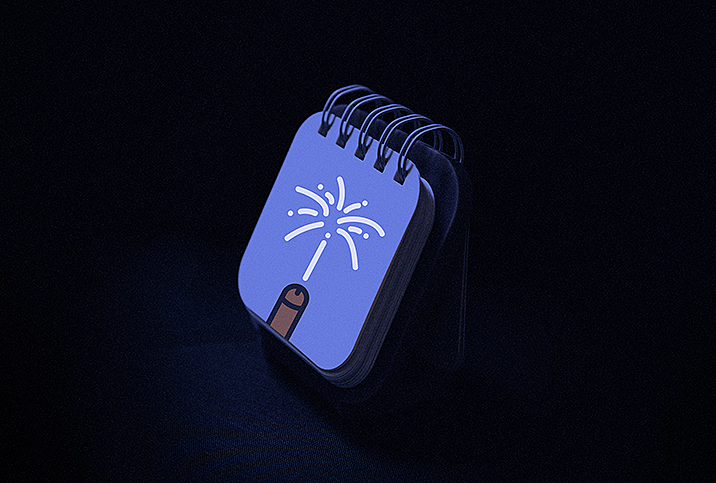Why Do I Laugh After I Orgasm?

The first time Dolly, 43, in London, Ontario, laughed hysterically after an orgasm was after having sex with a new partner after splitting up from her husband of 15 years.
"I almost can't contain myself," Dolly said, describing the experience as "exploding like a volcano."
Turns out, not everyone reacts to orgasming—aka coming—by moaning, screaming or calling out John Stamos' name. For some people, the big O can elicit an eruption of uncontrollable giggles, sometimes referred to as a laughing orgasm (or, to the sexually hip, "laughgasms").
Why do you laugh after sex and an orgasm?
If orgasms are grievously under-discussed, laughgasms are even more so. Even among people like Dolly, who report regularly bursting into laughter after boning, a common response is, "I didn't know it was a thing!"
After being reassured it was a real orgasmic phenomenon, respondents described the experience as "uncontainable" and "almost like a blackout." In addition, they tended to agree that laughing orgasms do not occur after every orgasm—rather, only when they are with a partner and only when the orgasms are particularly intense.
Jeremy, 30, in North Carolina, attested that laughter never arises after a solo sex session, but only when a partner is involved. "The better it is, the more likely it is that I laugh," he said.
So does Dina, who notes laughgasms often accompany what she calls "hot movie sex," or particularly exciting, spontaneous sex with a new partner. "I cry sometimes, too, but only when it's, like, soul-merging, baby-making sex," she added.
Laughing and giggles after sex: it's an adrenaline rush
So what's going on science-wise when you break into a fit of post-coming giggles?
Unfortunately, our research-backed understanding of orgasms in general skews limited, and there's even less research surrounding laughing and other peri-orgasmic phenomena—a term used to refer to the unusual physical or psychological symptoms some people experience after coming.
Here's what science does know: When you orgasm, you activate more than 30 spatially remote major brain regions, including the amygdala (involved in emotional expression and intense feelings), the limbic system (involved in regulating emotions and memory), the anterior hypothalamus (oxytocin production) and the pituitary gland (releasing hormones). These regions go into overdrive during orgasm, dutifully firing off a barrage of hormones and neurochemicals.
The powerful oxytocin-dopamine-epinephrine cocktail shaken during orgasm can generate some pretty intense emotions.
Among this barrage of hormones is oxytocin, which is secreted by the pituitary gland and released by the hypothalamus. Also known as a "love," "bonding" or "cuddle" hormone, oxytocin is thought to promote feelings of affection and closeness. Flowing from the pituitary and hypothalamus are endorphins, which reduce your perception of pain while triggering feelings of pleasure and well-being.
In the ventral cortex, dopamine is formed and released at the moment of orgasm. Dopamine, sometimes called the feel-good neurotransmitter or pleasure molecule, boosts mood while influencing our learning, sex drive and emotional reactions.
Meanwhile, epinephrine—aka adrenaline—is released in increased amounts by the adrenal glands. The surge of adrenaline boosts your heart rate and blood flow, making you feel energized and exhilarated.
The powerful oxytocin-dopamine-epinephrine cocktail shaken during orgasm can generate some pretty intense emotions. In rare instances, these may manifest themselves in unusual ways—such as laughter.
This theory aligns with the description of laughing orgasms from one subject, Karim, 30, in London, U.K. He tried to explain what he dubbed as the "inexplicable" experience of a laughgasm as "a full rush—I guess it's of endorphins—and you just start laughing."
In one of the few medical reviews of peri-orgasmic phenomena, published in the Sex Medical Review in 2017, researchers found case studies where subjects experienced not only laughter, but crying, panic attacks, sneezing and seizures.
"People respond to stimuli in different ways, and laughter and crying are some of them," said Javay da BAE, a sex educator who focuses on comprehensive and inclusive sex ed.
Responses such as laughing and crying aren't typically driven by sadness, or because something is particularly funny and/or sad. It's more of an emotional release, da BAE said. She, like Dina, tends to cry after orgasming and likens the spontaneous physiological responses to burping after a good meal.
How to talk about laughing orgasms and sex
Giggle-fits after orgasm are normal, Da BAE said. But she recognizes laughter—if left unexplained—could be off-putting to an unexpecting partner.
Should you warn a new partner about a potential explosion of guffaws in the sack? She doesn't think so.
"My apprehension about warning your partner before [having sex] is then it could create that goal of, 'Oh, I gotta make them orgasm so hard they laugh or cry,' which creates this extra level of stress," she reasoned.
When it does occur, da BAE said not to leave a laughgasm unaddressed, lest you leave your partner confused or hurt.
"Don't just let them sit there and wonder [why you're laughing]," she advised. "Explain, 'Hey, I'm not laughing at you, I'm just laughing because that was so good!'"
'I try to inform them that it's a part of my post-orgasm and usually it means something has gone really well or felt especially satisfying.'
As for Karim, Dolly, Jeremy and Dina, a few of them have had to reassure their partners that their sexytime sniggering wasn't directed at their new haircut or Spiderman sheets.
"I've had several partners with anxiety react like they are taken aback or worried I'm laughing at them," Dina said. "But I try to inform them that it's a part of my post-orgasm and usually it means something has gone really well or felt especially satisfying."
For Jeremy, he said, "I've had several girls ask why I'm laughing [and] I just say, 'I don't know, that just felt incredible' and they are like, 'Umm, okay.'"
Karim, on the other hand, said it hasn't been an issue with his sexual partners in the past. "They kind of laugh along," Karim said. "It's never been a turnoff, as far as I know—people just aren't used to it."
For Dolly, she said she never got the sense her titters bothered any of her lovers.
"I enjoy [laughing while orgasming] and just assumed they did as well."
Indeed, Dolly's current partner, Malcolm, 45, confirmed he's never found the laughter distracting or off-putting, saying, "I just laughed with her. It's amazing to be part of a reaction like that."




















